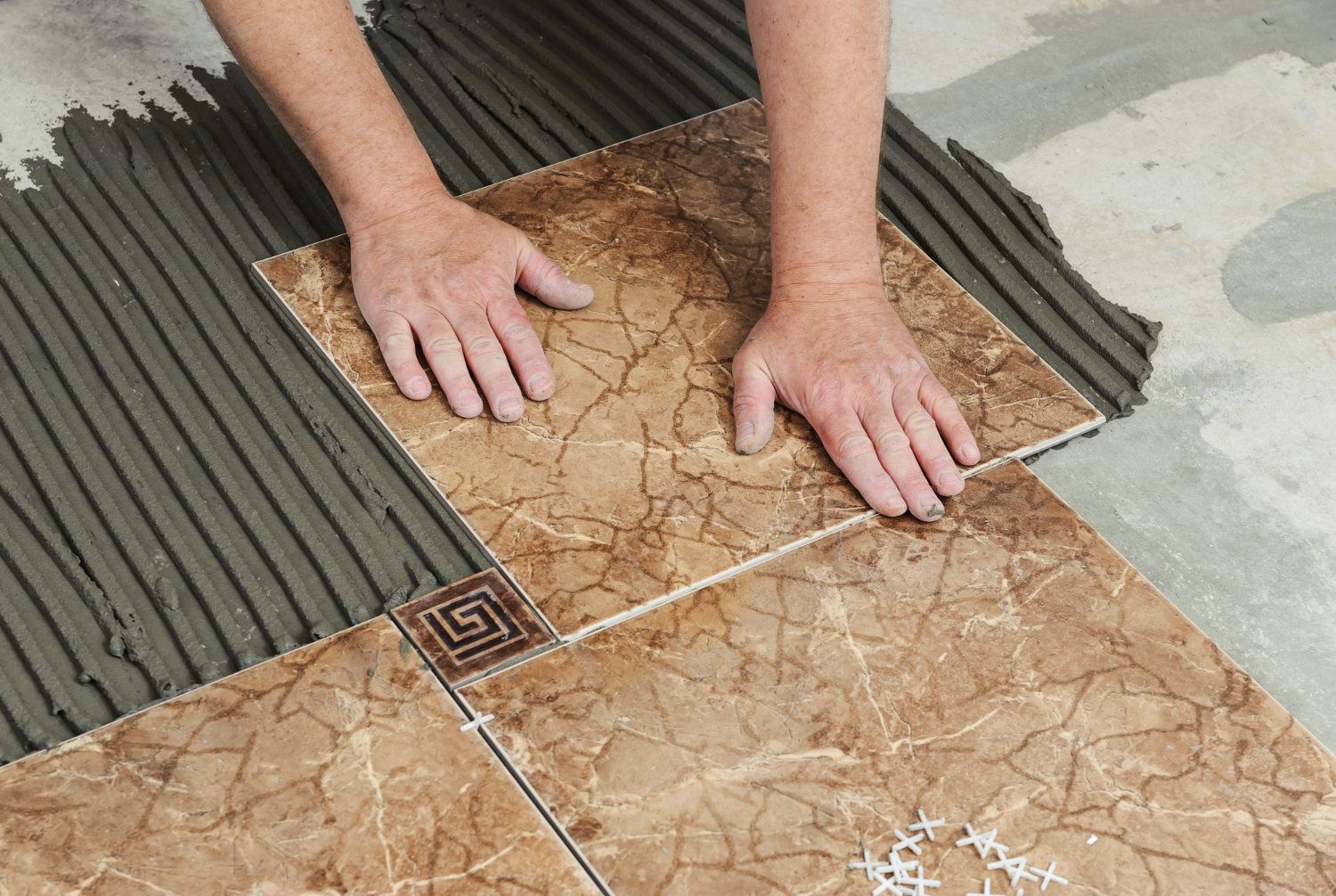When it comes to kitchen flooring, durability is a crucial factor to consider. The kitchen is a high-traffic area that experiences constant wear and tear. To ensure that your kitchen flooring can withstand the demands of this busy space, you need a material that is both durable and resistant to heat, moisture, stains, and impact damage. Here are some of the most durable tile flooring options for your kitchen:
Ceramic Tile
Ceramic tile is a popular choice for kitchen flooring due to its exceptional durability. Made from natural clay that is shaped, coated, and baked at high temperatures, ceramic tiles are long-lasting, stain-resistant, and water-resistant. With proper care, ceramic tiles can maintain their appearance and functionality for many years. They come in a wide range of colours, shapes, and sizes, allowing for various design options. Additionally, ceramic tiles can mimic the look of other materials, such as stone or wood, providing versatility in terms of aesthetics.
Moreover, ceramic tiles offer ease of maintenance, requiring simple sweeping and occasional mopping to keep them clean. Their durability and resistance to wear make them ideal for high-traffic areas like the kitchen. Whether you prefer a classic or modern look, ceramic tiles provide a timeless and practical flooring solution that can enhance the beauty and functionality of your kitchen for years to come.
Porcelain Tile
Porcelain tile is another excellent option for kitchen flooring. It is similar to ceramic tile but is denser and more resistant to water absorption. They are also highly stain-resistant, making them ideal for kitchen use where spills and stains are common. Porcelain tiles come in various finishes and designs, including options that resemble natural stone or wood.
Additionally, porcelain tiles are known for their versatility, as they can be used both indoors and outdoors, making them a suitable choice for kitchen floors that extend to outdoor areas. Their dense composition also makes them highly resistant to scratches and chipping, ensuring long-lasting durability. With their wide range of styles and superior performance, porcelain tiles are a popular and reliable option for durable kitchen flooring.
Concrete Tile
Concrete tile is a durable and long-lasting option, although it may not be suitable for all homes. If you have a kitchen on the ground floor and don’t have a basement, concrete tile can be an option. While concrete is cost-effective, its porous nature requires proper sealing to protect it from stains and water damage. Concrete floors can be polished, stained, or transformed to create a low-maintenance and stylish look, making them suitable for modern kitchens. However, it’s worth noting that the distinctive appearance of concrete flooring may not appeal to everyone.
Furthermore, concrete tile provides excellent heat resistance, making it a practical choice for kitchens where cooking and hot appliances are common. It is a versatile material that can be customized with various finishes and designs to match your desired aesthetic. While it may feel chilly and hard underfoot, the durability and unique charm of concrete tile make it a viable option for those seeking a long-lasting and contemporary kitchen flooring solution.
Natural Stone Tile
Natural stones, such as granite, limestone, marble, slate, and sandstone, can add elegance and durability to your kitchen flooring. Each type of stone has its own unique characteristics in terms of hardness, scratch resistance, and durability. Granite, for example, is known for its long-term durability when properly sealed and maintained. On the other hand, marble offers an elegant veined look but requires more maintenance due to its susceptibility to scratches and discoloration. Natural stone tiles offer a timeless and sophisticated appearance, making them desirable for homeowners looking for a high-end aesthetic.
While natural stone tiles provide a luxurious and visually appealing option for kitchen flooring, it’s important to note that they are porous materials and require regular sealing to protect against stains and water damage. With proper care, natural stone tiles can withstand the demands of a busy kitchen and offer long-lasting beauty that adds value to your home.
Bamboo
Bamboo flooring is gaining popularity due to its durability and moisture resistance. It provides the look and feel of hardwood while offering better performance in humid environments. Bamboo is created by compressing and weaving pulped bamboo fibres, resulting in a dense and durable material. It is an excellent choice for kitchens where moisture resistance is a concern. However, it’s important to note that the colour, grain, and pattern of bamboo flooring can vary, providing a range of visual impacts.
In addition to its durability and moisture resistance, bamboo flooring is also a sustainable option, as bamboo is a fast-growing and renewable resource. Its natural beauty and variety of grain patterns make it a versatile choice for different kitchen styles. With proper maintenance and periodic refinishing, bamboo flooring can maintain its appearance and structural integrity for many years, making it a reliable and eco-friendly option for kitchen flooring.
Brick
Though not commonly used in kitchens, brick flooring is a durable and long-lasting option that has been utilized for many years. Brick provides an industrial vibe and can withstand heat, impact damage, and abrasion. Regular sealing is necessary to prevent stains and water damage. Brick flooring offers a unique and rugged look for those seeking a distinctive style. However, it’s important to consider that brick is a porous material, so sealing must be done regularly to protect it from moisture and staining.
Despite its less common usage in kitchens, brick flooring offers a lasting and robust option with its ability to withstand heavy use. It’s rustic charm and industrial aesthetic can add a unique character to your kitchen space. With proper sealing and maintenance, brick flooring can provide durability and a distinctive look that sets your kitchen apart.
Wrapping Up
When selecting a durable flooring option for your kitchen, it’s essential to consider factors such as durability, moisture resistance, maintenance requirements, and the desired aesthetic. To ensure a successful kitchen renovation and explore various home renovation services, consider reaching out to Kettle Contracting. Their team of experts can assist you in choosing and installing the perfect flooring for your kitchen and provide a wide range of home renovation services to meet your needs.
Frequently Asked Questions
Q: What sort of kitchen flooring is the easiest to maintain?
A: Vinyl flooring is widely recognized as the easiest material to maintain. It is resistant to stains and water and does not have pores that can trap dirt or grime. Regular sweeping and occasional mopping is usually sufficient to keep vinyl floors clean and in good condition.
Q: Which type of flooring is the most moisture-resistant?
A: For families prone to spills or kitchens with high moisture levels, vinyl flooring is an excellent choice. Vinyl is highly resistant to water and moisture, making it a durable and practical flooring option. However, if maximum water resistance is the primary concern, ceramic tile is considered the most water-resistant material due to its non-porous nature.
Q: Which carpet hue shows the least dirt?
A: Light grey or light brown flooring is generally better at concealing dirt and dust compared to brighter white flooring. While dust is more visible on dark-coloured floors, it tends to show up more noticeably on bright, white flooring. Therefore, opting for a lighter hue can help minimize the appearance of dirt and dust between cleanings.



